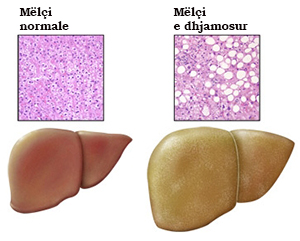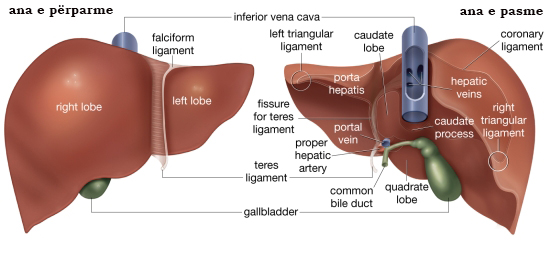Fatty Liver (Hepatosteatosis, Steatohepatitis) (Part One)

Fatty liver is the accumulation of fats in the liver cells. It is also known as hepatosteatosis or steatohepatitis. It is normal for the liver to contain some fats, but when their amount exceeds 5-10% of its weight, then the liver is considered fatty.
Often there are no symptoms (problems) for years, while the damage is in continuous process. People learn they have a fatty liver during examinations for other medical problems.
Fats can damage your liver for years or even decades without causing obvious problems. When the damage becomes severe or serious, it causes: fatigue, physical weakness, weight loss, and confusion.
The liver is the largest organ in the body. It performs many functions and often does not give warning signs when it is sick until the advanced stages of the disease.
The liver performs many important functions including:
- Breaking down food.
- Storing reserves of vitamins, iron, and other essential minerals for the body.
- Producing proteins.
- Producing bile juices for the digestion of food.
- Breaking down many products including medications, alcohol, and many toxins.
